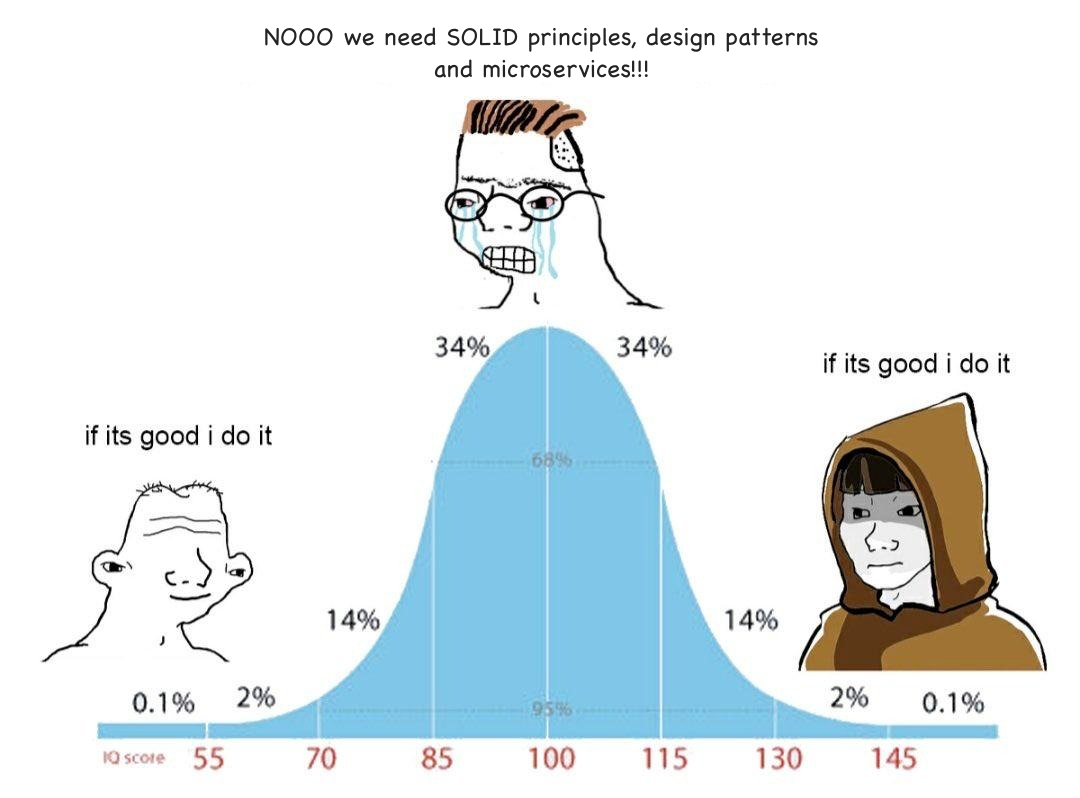Simple, Complex, Right: The Engineering Complexity Paradox

I’ve been thinking about this pattern I’ve noticed over years of building software. It’s fascinating how engineers naturally gravitate toward three distinct approaches when solving problems.
The Minimalist Approach
These are your “if it works, ship it” folks. Love how they keep things dead simple - one function, minimal dependencies, quick deploys. Sure, some might call it too basic, but I’ve seen these solutions outlast many overengineered alternatives. They just work.
The Maximalist Zone
This is where most of us land at some point (guilty as charged). You know the type - implementing every design pattern they’ve just learned, breaking a simple app into 15 microservices, adding Redis to cache a static page. Classic architecture astronaut stuff. We’ve all been there, turning a simple form submission into an event-sourced distributed system.
The Pragmatic Sweet Spot
This is where it gets interesting. After years of swinging between too simple and too complex, you start developing this sixth sense. You pick the right tool because you’ve used the wrong ones. You know when to grab something off the shelf versus building custom. It’s not about showing off your technical chops - it’s about delivering value.
This mirrors most developers’ natural journeys. We start simple because we don’t know any better. Then we learn all these patterns and frameworks and go nuts applying them everywhere. Finally, if we’re lucky, we figure out when complexity is actually worth it.
Here a few things I’ve learned along the way:
- Simple doesn’t mean simplistic - choosing simplicity is different from being limited by it
- Make complexity prove its worth - every abstraction should fight for its place in your system
- The best engineers aren’t the ones who know the most patterns, but the ones who know when to use them and (perhaps) more importantly when NOT to use them
Next time you’re designing something, try this mental check: Does this really need to be complex? Am I solving the actual problem or just showing off? Will this scale with real needs (not imagined ones)?
The goal isn’t to impress at tech talks. It’s to solve real problems in ways that won’t make future-you curse past-you.
Would love to hear your experiences with this. Where do you find yourself on this curve?
Drop your thoughts below.